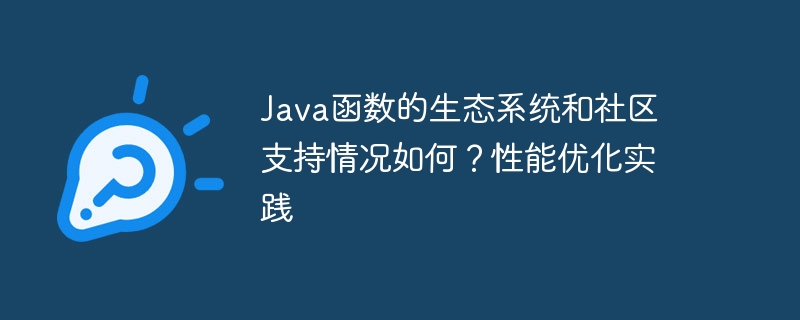
The Java Functions ecosystem offers a rich set of libraries, frameworks, and community support, including the Lambda library, Guava library, and Jackson framework. Its community support includes Stack Overflow, GitHub resources, and official documentation. In a practical example, the SquareMapper function demonstrates how to map numbers to square values. Performance optimization practices include parallel stream processing, avoiding intermediate operations, caching results, and optimizing data structures.

Java Function Ecosystem and Community Support
The Java Function ecosystem consists of a rich library, framework, and community resources. Provides extensive functionality and support:
Libraries and Frameworks:
Community Support:
Practical case:
Consider a function that maps a set of numbers to a square value:
import java.util.List;
import java.util.stream.Collectors;
public class SquareMapper {
public static List<Integer> mapSquares(List<Integer> numbers) {
return numbers.stream()
.map(n -> n * n)
.collect(Collectors.toList());
}
public static void main(String[] args) {
List<Integer> numbers = List.of(1, 2, 3, 4, 5);
List<Integer> squares = mapSquares(numbers);
System.out.println(squares); // 输出:[1, 4, 9, 16, 25]
}
}Performance Optimization Practice :
The above is the detailed content of How is the ecosystem and community support for Java functions? Performance optimization practices. For more information, please follow other related articles on the PHP Chinese website!
